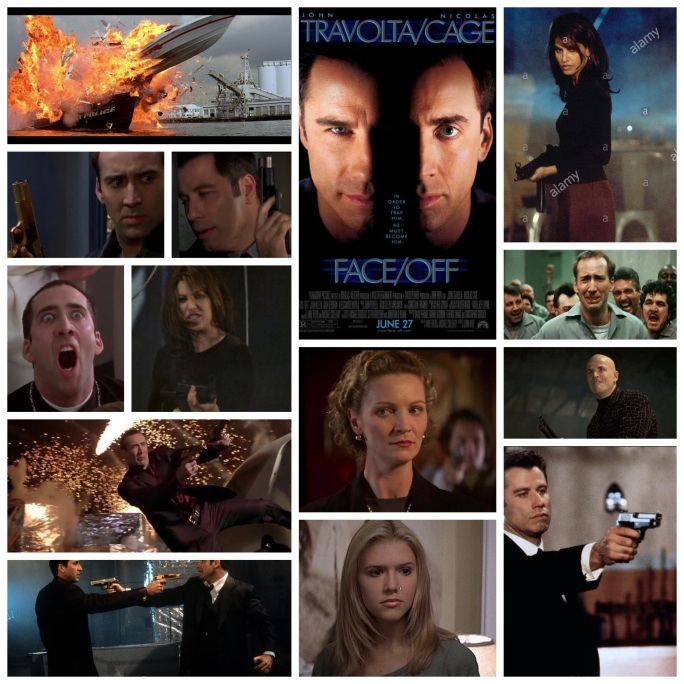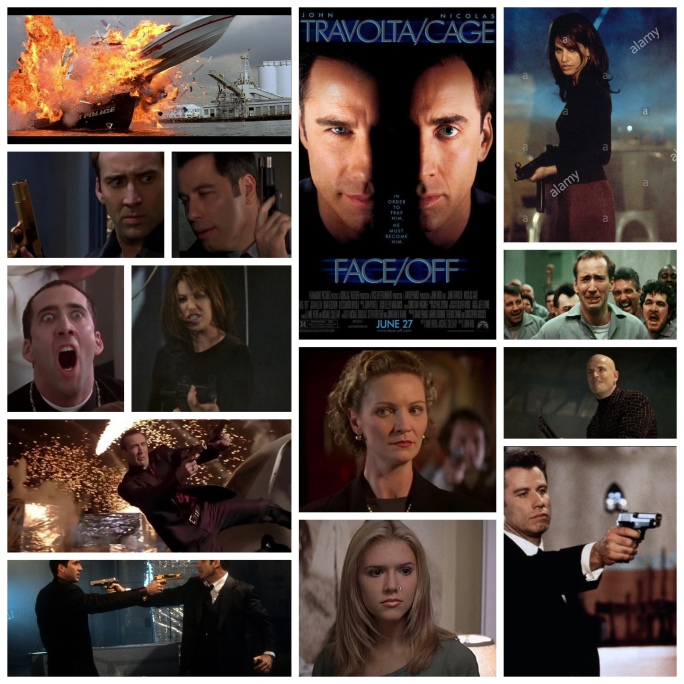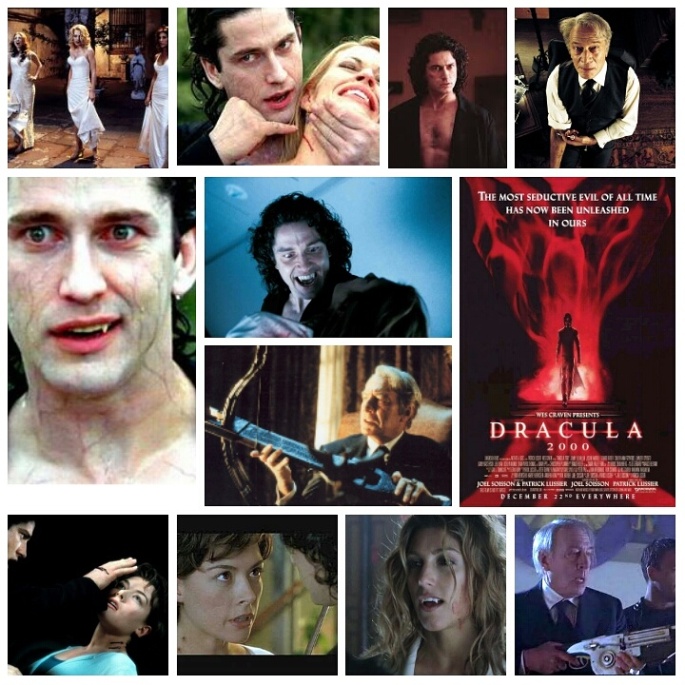
John Woo’s Face/Off was originally conceived as a Schwarzenegger/Stallone vehicle and was to exist in a far more futuristic setting. I’m glad that the eventual execution was more down to earth because I get cold sweat visions of the 90’s Judge Dredd flick with Arnie swapped in for Armand Assante. Jokes aside, the performances, production design finished product turned out to be pretty much as amazing as anything you’ll find in Hollywood throughout the years, and has become a classic for me.
John Travolta and Nicolas Cage are perfectly paired as grizzled FBI super-agent Sean Archer and eccentric, psychopathic rock star terrorist Caster Troy, two star crossed arch enemies who find themselves battling on a whole new plane when their faces literally get swapped by the bureau’s fanciest clandestine nip tuck procedure. This gives the film not a only a high concept boost but the opportunity for each actor to really break free from the bonds of playing just one character and overlap into the realms of their counterpart, not to mention parody the absolute fuck out of their respective acting styles, which we as moviegoers know is never short on eccentricity for the both of them. Others revolve around them, specifically two very different women in their lives who are caught up in the in the titanic clash of will, ego and guns upon guns. Joan Allen is angelic poetry as Eve, Archer’s wife, and Gina Gershon adds a feline sexiness in Sasha, Troy’s old concubine. They both share a wounded nature in different ways, both having been drawn into the conflict and taking charge of their trajectory in different, equally compelling ways. Nick Cassevetes and his bald dome steal scenes as Dietrich, Troy’s trigger happy lieutenant, Dominique Swain shows early what talent she has as Archer’s strong willed daughter and there’s a galaxy of supporting talent including Harve Presnell, Colm Feore, CCH Pounder, Matt Ross, Margaret Cho, Thomas Jane, John Carroll Lynch, Alessandro Nivola, Chris Bauer, Robert Wisdom, Kirk Baltz, Paul Hipp, Danny Masterson, David Warshofsky, Thomas Rosales and Scottish badass Tommy Flanagan, early on before Hollywood gave him lines and those leering Joker scars did the talking.
This is the Cage/Travolta show most of the way though and they positively rock the house as two dysfunctional would-be siblings who could probably sit down and have a few beers together if they weren’t so busy trying to kill each other. Woo outdoes himself in a production that includes all of his hallmarks: white doves breaking formation in languid slo-mo, dual wielded berettas barking out clip after clip, symphonies of smashing glass, looming pillars of fireball pyrotechnics and the always classy tradition of characters having firefights clad in snappy suits. There’s a plane chase, a boat chase (my favourite sequence of the film), a breathless aquatic prison break, a church shootout of biblical proportions, a thundering FBI raid on a dockside stronghold, a vicious beatdown of Hyde from That 70’s Show (art eerily imitates life here) and the most inventive use of a harpoon gun I’ve ever cringed at.
Obviously the content of my favourite films is fluid and changes over time but in terms of a top action film, this is likely the constant. It’s like the whole genre went to sleep, had a dream and this was the resulting output. I gotta mention the original score because it’s a doozy, but I’ve always been a bit confused who to thank for it. IMDb has John Powell credited, whose work I love on the Bourne films. But other research turns up evidence of stuff from Hans Zimmer and James Newton Howard as well, so I’m not sure who did what or if it was a collaboratively lateral thing, but in any case it’s fantastic work, particularly in the boat chase where the composition reaches that near celestial height where it has the power to raise the hairs on your arms. What else is there to say? “Gonna take his face…. off…!”
-Nate Hill


